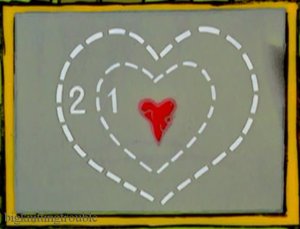Tonight, at the top of the service, my pastor asked us to pray that God would enlarge our hearts, like the Psalmist wrote in 119:32.
In my seat near the back, between a stranger and a friend, I felt my body stiffen. “NO!” I thought, without pause, “I want my heart to shrink!” (Cue the Grinch jokes.)

It felt like God was pressing me on why I was so resistant to the idea of an enlarged heart. I missed two-thirds of the sermon, pacing in thought and prayer, trying to chase away emotions and tears.
In the past 18 months, I’ve lost a sister to brain cancer, been through two heart surgeries, suffered accidental electrocution, persevered through fractured friendships and betrayals, had my heart broken, and learned that — despite other people’s frustration over the people I have loved in my life — I can’t seem to unlove them.
I don’t want an enlarged heart. I want less room for my heart to ache, less surface area for tears to saturate the soil, less opportunity for disappointment and disaster.
“If you want to make sure of keeping [your heart] intact you must give it to no one, not even an animal. Wrap it carefully round with hobbies and little luxuries; avoid all entanglements. Lock it up safe in the casket or coffin of your selfishness.”
But we all know that wasn’t advice, don’t we? It was a warning.
“… in that casket, safe, dark, motionless, airless, it will change. It will not be broken; it will become unbreakable, impenetrable, irredeemable. To love is to be vulnerable.”
My “casket of selfishness” indeed. I valued myself and my comfort more than the depth granted to me in my relationship with God.
—-
It’s nice not to feel needles. But it’s not healthy.
—-
As my pastor neared the end of his sermon, I sat thinking about those needles and how convenient it was to avoid feeling them. But I don’t want to be someone who numbs and withdraws; I want to be vulnerable and to love well. So I told God:
Sometimes healing looks like feeling the pain. Maybe that’s why He told us to mourn with those who mourn — because we are supposed to feel it, and even to help others feel their own pain as well. Maybe that’s why Romans 5:3 lists “endurance” as the first fruit of suffering — because it’s going to take a while.
And if nothing else, there is this: I have stood on the shoreline of the Sea of Galilee, where Christ showed up to greet Peter after his threefold denial, fed him breakfast and commissioned him for ministry. And Christ’s love in the face of His great pain shows me a bit about how to love well in the face of my own.
